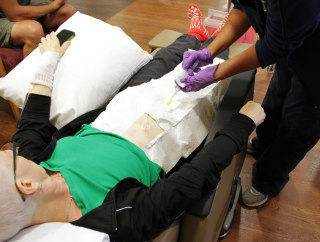
In the News
Irregular Periods May Raise Ovarian Cancer Risk, Study Finds
-
Focus Areas
Women, Youth & Children -
Issues
Cancer -
Expertise
Research – Surveillance -
Programs
Child Health and Development Studies
 Researchers who were trying to show that irregular periods might protect women against ovarian cancer found just the opposite: Women who had unpredictable cycles in their 20s were more likely to develop ovarian cancer decades later.
Researchers who were trying to show that irregular periods might protect women against ovarian cancer found just the opposite: Women who had unpredictable cycles in their 20s were more likely to develop ovarian cancer decades later.
The study of 15,000 women doesn’t mean that every woman who has irregular periods is doomed to develop ovarian cancer. Out of all those women, over the next 50 years, only 116 developed ovarian cancer, the researchers report in the International Journal of Cancer.
“This does not mean that every patient who has irregular bleeding has an elevated risk of ovarian cancer. Absolutely not,” said Dr. Ginger Gardner of Memorial Sloan Kettering Cancer Center in New York, who was not involved in the study.
“It’s a higher risk of a very rare disease.”
What the findings can do is offer new avenues for research into what causes ovarian cancer, a highly deadly form of cancer because most women don’t even know they have it until it’s spread.
In the study, women who had irregular periods at age 26 had double the risk of ovarian cancer by age 70 and triple the risk by age 77.
“Discovering high-risk traits like irregular menstruation gives clinicians the opportunity to potentially save lives by identifying them as early warning signs and developing strategies to reduce these women’s risk of death,” said Dr. Barbara Cohn of the Public Health Institute in Oakland, California, who led the research.
“This is the first prospective study to show an association between irregular menstruation and ovarian cancer – we unexpectedly found higher risk for women with irregular cycles,” Cohn and colleagues wrote.
Ovarian cancer will be diagnosed in more than 21,000 American women this year and it will kill more than 14,000. It is the fifth leading cause of cancer deaths among women, killing 55 percent of patients within five years.
Screening for ovarian cancer is tricky because the symptoms are pretty vague. They can include bloating, which can be caused by something as simple as a heavy meal.
The single best-known risk factor is a family history of ovarian cancer. But most cases are in women with no known family history of ovarian cancer. Women with endometriosis — an overgrowth of the uterine lining —have a higher risk of ovarian cancer.
There’s a protein called CA-125 that is associated with tumors. But while CA-125 often does rise as ovarian tumors grow, there’s not a single specific level that can tell a doctor a woman is at risk. Some women with cancer have low levels, and some healthy women can have high levels.
And as recent debates over mammograms and prostate cancer screeningprograms have shown, it’s challenging to figure out who to screen and how often.
So researchers are keen to find better ways of identifying women who might be at risk, so they can be watched more closely.
One thing that doctors know is that women who use birth control pills have a lower risk of ovarian cancer. It might be because the hormones in the pills suppress the ovaries, and women taking them don’t have normal menstrual periods.
Cohn’s team thought that natural conditions that cause fewer periods might also prevent ovarian cancer, so they looked at a large study that started in 1959, tracking women as they became pregnant and had children.
The idea was to track the kids, but the researchers also got lots of data on the moms.
Women who had long cycles of 35 days or more, who had irregular periods or who didn’t ovulate were classified as having polycystic ovarian syndrome. They were presumed to have it — there was no formal diagnosis of PCOS.
That included about 13 percent of the women.
Years later, these women were more likely to have ovarian cancer. The researchers found that 116 were diagnosed with ovarian cancer, at an average age of 63, and 84 of them died from the cancer.
The risk was independent of how much the women weighed or how many children they had.
“It is notable that the threefold increase in risk of ovarian cancer by age 77 we observed for women with irregular/infrequent cycles in this study is equal to the increase in risk observed for women with a family history of ovarian cancer in a first-degree relative,” Cohn said in a statement.
“Our study finding could lead to better understanding of the 90 percent of ovarian cancers that occur in women with no family history of ovarian cancer and with no known high-risk inherited mutations.”
Continue reading the full article on NBC News.
Read another story on the new study in Science Magazine.
Originally published by NBC News
More Updates


Safeguarding the Health and Wellbeing of Agricultural Workers in Monterey County: A 5-Year Glance at the COVID Pandemic & Lessons Learned

New Study Reveals Why Alcohol Use Increased During the Pandemic

PHIL Collective: Tools, Training and Resources for Collaborative, Cross-Sector Efforts to Improve Health and Equity
Work With Us
You change the world. We do the rest. Explore fiscal sponsorship at PHI.
Support Us
Together, we can accelerate our response to public health’s most critical issues.
Find Employment
Begin your career at the Public Health Institute.

